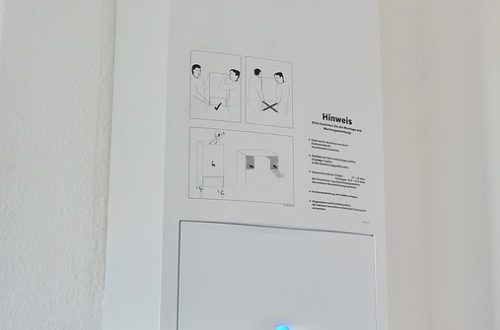5 Signs It’s Time to Replace Your Water Heater

What are the first things you do in the morning?
You check your email, brush your teeth, and take a hot shower to energize yourself for the workday. Now imagine that one day, as you go about your usual routine, you notice that there’s no hot water. That’s something that can ruin your entire day completely.
Heated water is one of the perks of the modern age. It is such a natural occurrence in our lives that we take it for granted and ignore the warning signs that announce a potential problem. That is until we wake up one day and discover that instead of hot, steamy water, our boiler only delivers tepid or cold water.
A water heater can last for about 15 years, but that doesn’t mean that you should close it in your basement and forget about it for the next decade or so.
If you don’t check it every once in awhile, at least be on the lookout for signs that tells you it’s about to fail. Troubleshoot the issues early on, before they snowball into a costly repairs.
Here’s what you should keep an eye for:
1. Water Leaks
If you notice any moisture or puddles of water around the heater, then that’s a clear sign that it may have a leak or fracture. Turn off the circuit to determine the location of the leak. If it’s from a loose valve, top release valve or bottom drain valve, tighten it up and see if the leak stops. If the water is coming from the base of the heater, then the problem is internal. The structure is either damaged or rusted, in which case you might need to replace the system. Another cause might be sediment buildup affecting plumbing connections. Be aware that a leaking heater can flood the entire house.
2. Rusty Water
As your heater ages, the metal tank begins to rust, and you start noticing muddy water coming from your taps. If the problem persists and the side piping of your house is the source, then it means that the heater is rusting from inside out, and it might start to leak soon. The issue could also be the pipes, especially if you have galvanized piping.
Before deciding anything, drain a few buckets out of the tank. If by the third bucket, the water is still rusty, you may have to replace the heater.
3. Lack of Hot Water
When the water is not hot enough, or you run out of hot water faster than usual, then your heater is likely failing. If you have no hot water at all, the problem may be with a broken heating element. Sometimes, when the tank is old and overused, mineral sediment set and harden on the bottom of the boiler. The deposits will keep the heat generated by the element from reaching the water, which will then, overexert itself and run longer and longer until the heater fails and starts to leak. You can prevent this issue by flushing the heater regularly.
4. Noisy Heater
Crackling, rumbling, popping, gurgling or other weird noises mean that your heater is malfunctioning. Mineral buildup is, once again, at fault for this problem. The heating element burns the sediment when it gets in contact with it.
Try draining the tank and see if the issue is solved. If not, then you might have a problem with the burner itself. The deposits hardened, causing the element to work harder until it wears out.
5. Age
Water heaters are designed to last between 10 to 15 years. From then on, they’ll most likely need more maintenance, if not replacement. Although it may not give you major troubles, it’s definitely worn out, especially if you didn’t follow a regular service schedule.
If you’re not sure about how old your heater is, check its serial number label. It’s usually an alphanumeric code which includes the month and year the heater was manufactured. If you have trouble interpreting it, then you should visit the manufacturer’s website. You will probably find all the information you need there. Nevertheless, when a heater hits the 10-year mark, it’s time to think of replacing it.
Final Word
Make sure to flush your water heater and have it checked by a professional regularly. That way, you’ll ensure the system will always work at optimum levels, and it’ll live longer. Even so, issues can occur, so keep an eye out for any signs of failure. Respond quickly to avoid uncomfortable and expensive situations.
Would you like to receive similar articles by email?





